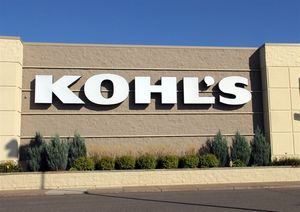Findings establish AI-powered foundational model as a transformative tool for therapy selection, efficient trial design and drug development
BostonGene, a leader in AI-powered solutions for drug discovery and development, today announced the publication of a collaborative study*, “AI-driven multimodal algorithm predicts immunotherapy and targeted therapy outcomes in clear cell renal cell carcinoma,” in Cell Reports Medicine. The study introduced the largest harmonized transcriptomic and clinical dataset in kidney cancer and presents a model of how advanced multimodal AI solutions can identify previously unknown determinants of response to combinations of immunotherapy and VEGF inhibitors in solid tumors.
While immune checkpoint inhibitors (ICIs) and VEGF inhibitor specific tyrosine kinase inhibitors (TKIs) have transformed care, treatment for metastatic clear cell renal cell carcinoma (ccRCC) remains challenged by variable responses, frequent progression and therapy-related toxicities and a lack of guidance on when to apply combination versus single agent therapy. Previous predictive models showed promise, but lacked reproducibility and biological interpretability across independent cohorts.
Leveraging more than 3,600 patient samples and harmonized clinical data, researchers developed a multimodal foundation model trained on extensive real-world datasets that integrates genomics, transcriptomics and tumor microenvironment (TME) profiling. The digital twin-like model generated representations of patient biology. It uncovered five novel Harmonized Immune Tumor Microenvironment (HiTME) subtypes — distinct categories of ccRCC defined by unique immune infiltration patterns, genomic alterations and prognostic outcomes. Importantly, these subtypes were validated with spatial proteomics, ensuring predictions mapped directly to tumor biology rather than functioning as a “black box.”
Using the HiTME subtypes, researchers generated clinically interpretable responder scores that correlated with survival outcomes for both ICIs and TKIs across independent cohorts. This led to a decision-tree tool that stratified patients into ICI-preferred, TKI-preferred or non-responder categories, establishing a data-driven methodology to stratify patients by underlying immune and tumor biology, enabling new insights for drug development and clinical research. The framework also revealed a therapy-resistant subgroup characterized by immune-desert phenotypes and angiogenic signaling–highlighting urgent unmet needs and new therapeutic avenues.
“This study demonstrates how multimodal foundation models can reshape oncology,” said Nathan Fowler MD, Chief Medical Officer at BostonGene “By grounding predictions in tumor biology rather than opaque algorithms, we enable clinicians to understand why patients may or may not respond to treatment — making AI both clinically actionable and scientifically trustworthy.”
*Research conducted in collaboration with Washington University in St. Louis and Memorial Sloan Kettering Cancer Center.
About BostonGene Corporation
BostonGene helps drug developers de-risk and accelerate research and development using a clinically validated AI platform purpose-built for oncology and supported by a CLIA-certified and CAP-accredited clinical laboratory. By integrating advanced molecular and immune profiling with clinical data, we uncover actionable insights that inform trial design, optimize patient selection and improve clinical outcomes. Our diagnostic and treatment recommendation solutions are used in clinical settings to personalize care and guide therapy decisions for patients. For more information, visit www.BostonGene.com.
View source version on businesswire.com: https://www.businesswire.com/news/home/20250902712437/en/
“By grounding predictions in tumor biology rather than opaque algorithms, we enable clinicians to understand why patients may or may not respond to treatment — making AI both clinically actionable and scientifically trustworthy.”
Contacts
Media:
BostonGene
Erin Keleher
+1-617-283-2285
Erin.Keleher@BostonGene.com






